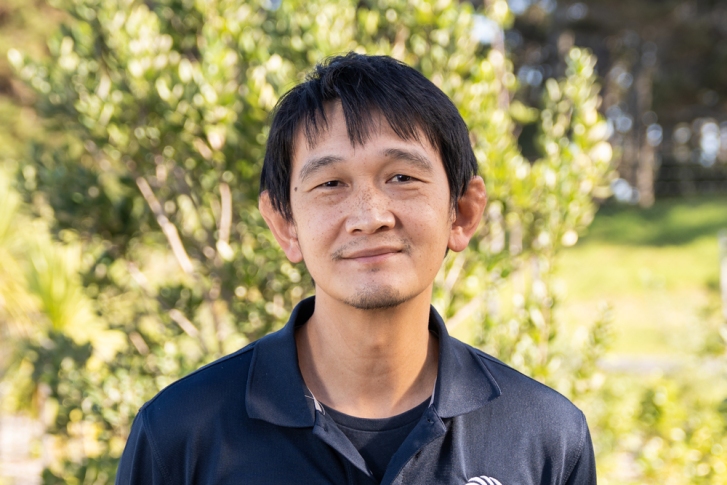On this page:
2019-2020
Kingfish fingerling production
Objective: Demonstrate capabilities for year-round commercial-scale production high-quality kingfish juveniles for commercial and research use. To determine the impacts of various rearing strategies and environmental factors on the performance of kingfish fingerlings to optimise commercial farm design and operation.
Kingfish broodstock husbandry
Objective: Maintain and enhance our existing and kingfish broodstock performance.
Kingfish juvenile rearing
Objective: Optimise the performance of the stock through better rearing condition and genetic selection to directly support consolidation of the commercialisation readiness of the species.
Kingfish juvenile RAS optimisation
Objective: Test and develop technologies that improve the performance of kingfish in RAS, and the performance of the RAS itself.
Aquaculture discharge treatment
Objective: Develop techniques to improve aquaculture waste water treatment through minimisation of nutrient discharge and conversion.
Hapūku broodstock husbandry
Objective: Maintain a limited number of wild caught broodstock. Grow current spawning age F1 broodstock to reach an average weight of 18Kg body mass for females as fast as possible while minimising adiposity. Discourage spawning using temperature manipulation.
2018-2019
Kingfish broodstock husbandry
Objective: Maintain and enhance our existing and newly caught kingfish broodstock performance and develop in-vitro fertilisation techniques.
Kingfish commercialisation development
Objective: Demonstrate capabilities for commercial-scale production of high quality kingfish juveniles for commercial and research use.
Kingfish RAS technology
Objective: Determine operational parameters for water quality in an intensive RAS for yellowtail kingfish.
Hapūku broodstock husbandry
Objective: Establish consistent commercial level production of juveniles through optimised broodstock husbandry to support commercialisation of the species.
Hāpuku juvenile production commercialisation readiness
Objective: Establish consistent commercial level of juvenile production and optimise cost-effective growout rearing practices to demonstrate commercial readiness of the species.
2017-2018
KingFish broodstock husbandry
Objective: Maintain and enhance ourexisting and newly caughtkingfish broodstock performance.
Kingfish commercialisation readiness
Objective: Demonstrate capabilities for commercial-scaleproductionof high quality kingfish juvenilesfor commercial and research use.To determine the impacts of various rearing strategies and water quality on the performance of kingfish in order to optimise commercial farm design and operation.
Finfish Health Research
Objective: Develop and validate a health panel for kingfish based on haematology, mucous smear, behavioural assayswater chemistry, endocrine andimmunity markers, transcriptomics.
Marine finfish RAS development
Objective: Develop, refine and test both new and existing RAS technologiesfor the commercial on growing of Kingfish in order to optimise RAS design and operation.
Hāpuku broodstock husbandry
Objective: Maintain optimal husbandry conditions to sustain and improve egg and larvae quality, and assess capacity to influence breeding schedule through multi-year photothermal manipulation.
Hāpuku juvenile bottleneck
Objective: Demonstratethe following: a) viable egg production of >45% and >20% for F1 and F2 eggs, b)post-weaning survival of > 2%,and c) >30% juvenile survival.
Shellfish Research
Objective: Investigate the impacts on mussel spat performance fromthe collection and transport methods. Determine relative performance of oyster spat provided withdifferent food types.
2016-2017
Kingfish broodstock husbandry
Objective: Maintain and enhance our kingfish broodstock capability by rearing existing wild and F1 and newly caught wild kingfish in appropriate conditions.
Kingfish hatchery
Objective: Demonstrate capabilities for commercial-scale productionof high quality kingfish juveniles for commercial and research use.
Kingfish trials
Objective: Determine the impacts of various rearing strategies and water quality on the performance of kingfish in order to optimise RAS design and operation.
Hapūku broodstock husbandry
Objective: Assess the effects of feeding, environment, photothermal regime, and newly captured wild fish on the production of viable hāpuku embryos and larvae.
Hāpuku – Resolving juvenile bottlenecks
Objective: Identify key husbandry parameters that enable repeatable production of good quality hāpuku larvae and juveniles.
2015-2016
Wild kingfish broodstock husbandry
Objective: Maintain and enhance our kingfish broodstock capability by rearing existing and newly caught wild kingfish using appropriate rearing conditions.
Kingfish hatchery
Objective: Demonstrate capabilities for production of high quality juveniles for commercial production, some of which will be available for planned performance optimisation and RAS research trials.
Kingfish trials
Objective: To determine the impacts on biological and economic performance of kingfish under various regimes of water quality and rearing strategies to enable optimisation of RAS design and operation.
F1 Kingfish broodstock husbandry
Objective: The production of healthy selected F1 spawning broodstock to supply viable gametes and larvae from spawning in 2016 and beyond.
F1 Hapūku broodstock husbandry
Objective: Identify mature F1 hapuku of spawning potential in 2015 and produce viable gametes and larvae for nursery production.
Hapūku egg incubation
Objective: To produce sufficient quantities of yolk-sac larvae for commercial development and to confirm production capacity of current hapuku stock.
Wild hapūku broodstock husbandry
Objective: Maintain our wild hapuku broodstock resource for the production of viable eggs and larvae.


